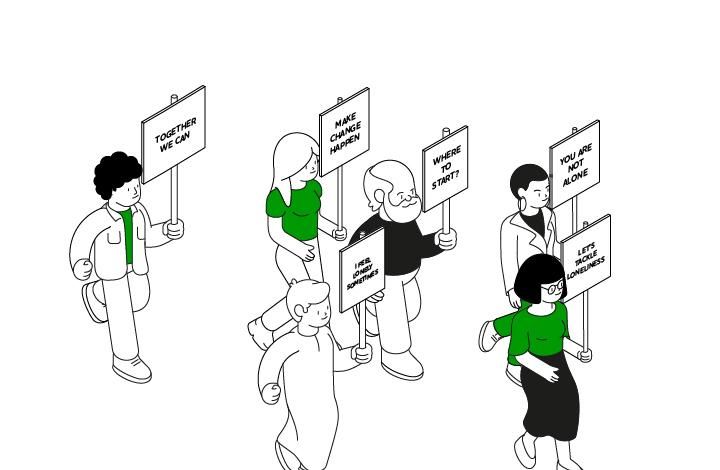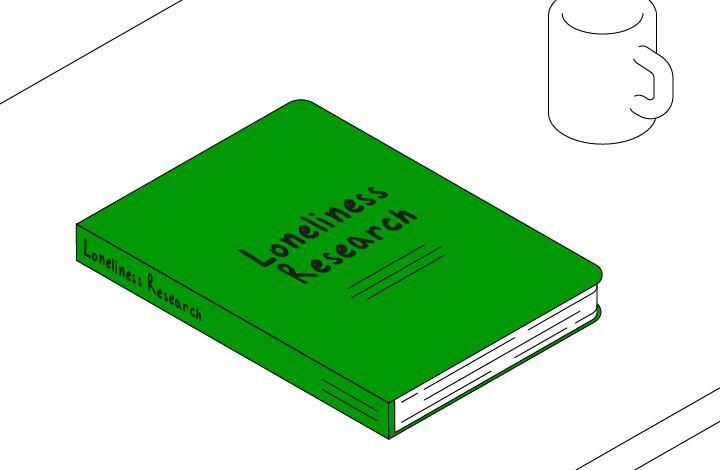Together we can tackle loneliness
Loneliness is affecting more and more of us in the UK and has had a huge impact on our physical and mental health during the pandemic.
Our connection to other people and our community is fundamental to protecting our mental health and we need to find better ways of tackling the epidemic of loneliness. We can all play a part in this. We want to raise awareness of the impact of loneliness on our mental well-being and the practical steps we can take to address it.
Reducing loneliness is a major step towards a mentally healthy society.
One in four adults feel lonely some or all of the time. There’s no single cause and there’s no one solution. After all, we’re all different! But, the longer we feel lonely, the more we are at risk of mental health problems. Some people are also at higher risk of feeling lonely than others.


Our Loneliness Report
Our report explores everything to do with mental health and loneliness.
We look at why it matters, who experiences loneliness and what it feels like. The report also investigates how well people understand loneliness and suggests ways that we can respond as individuals and across society.

Our Policy Briefing
In recent years, the governments around the UK have rightly recognised tackling loneliness as a priority for policy action.
The Westminster Government was the first to appoint a Minister for Loneliness and to publish a strategy on tackling loneliness, and Scotland and Wales have also published loneliness strategies. It is essential that we do not lose this momentum.
Resources and advice
Explore our loneliness guides, packs and advice to tackle loneliness in your community.
How to cope with loneliness and improve your mental health
We worked with people who have experienced loneliness to develop some help and advice that you might find useful for yourself or to support other people who are feeling lonely.
View our loneliness help and advice
Loneliness school pack
This pack explores what loneliness is, how it can affect our mental health and the different ways we can connect with ourselves, others and the world around us to feel less lonely.
View Loneliness School Pack
A student guide to loneliness
This guide is aimed at students aged 16+. It explores loneliness and mental health and provides tips for students together with ideas of how to get involved and raise awareness in communities, at school, college or university.
View Student Guide to Loneliness
A young parent guide to loneliness
The Mental Health Foundation and The Lullaby Trust have developed this guide to support young parents who may be feeling lonely.
View Young Parent Guide
Loneliness - a guide for teachers and education staff
Education Support in partnership with the Mental Health Foundation has produced a guide to support teachers and education staff with the experience of loneliness.
View Teachers and Education Staff Guide
Loneliness - the later life toolkit
Loneliness for people in later life can be a real challenge on a daily basis. Many older people may become lonely due to the loss of a loved one or spouse, relocation to new settings or it may be due to having developed an illness or a disability.
View Loneliness Later Life Toolkit
Loneliness - Let's Talk: Mental Health podcast
In this episode of our podcast, we talk about loneliness and what it means to feel lonely, how it affects our mental health, who experiences it and what we can do to cope with it.

Loneliness in Young People campaign
The #UnlockLoneliness campaign aims to raise awareness of loneliness in young people, provide tips to help you cope and actions that the government can take to tackle loneliness.

Blog: Exploring loneliness in children
Following the release of a report from the ONS, this blog explores the impact loneliness has on children and highlights areas we should tackle as a result.

Stories about loneliness
We can all experience loneliness. We are proud to bring together a collection of inspirational and moving stories of people's experiences of loneliness.












Why loneliness was the theme for Mental Health Awareness Week 2022
Read the blog by our CEO Mark Rowland

